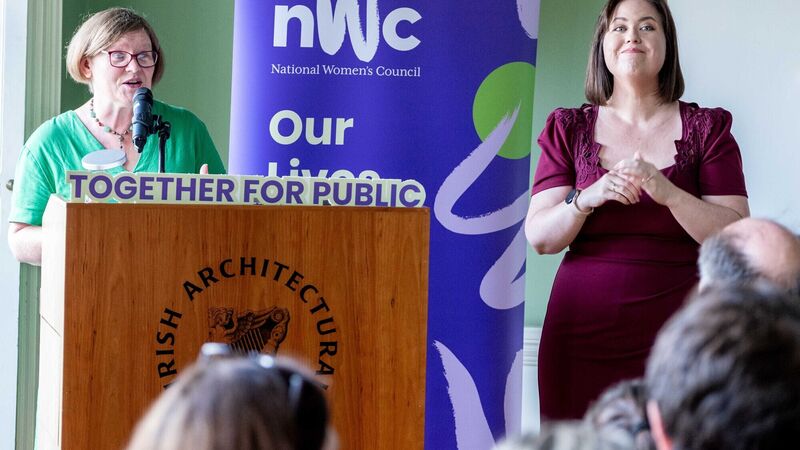Publicly funded childcare would be a gamechanger for mothers and children

Chief executive of the National Women's Council Orla O'Connor at the launch on Thursday of Together for Public, a new campaign advocating for a public system of early childhood education and care. Picture: Alan Rowlette / RollingNews.ie
Imagine if every child in Ireland had an early years and afterschool place that was high quality, accessible, and affordable.
Imagine the professional looking after them worked in a secure, well-paid position, commensurate with their qualifications.













